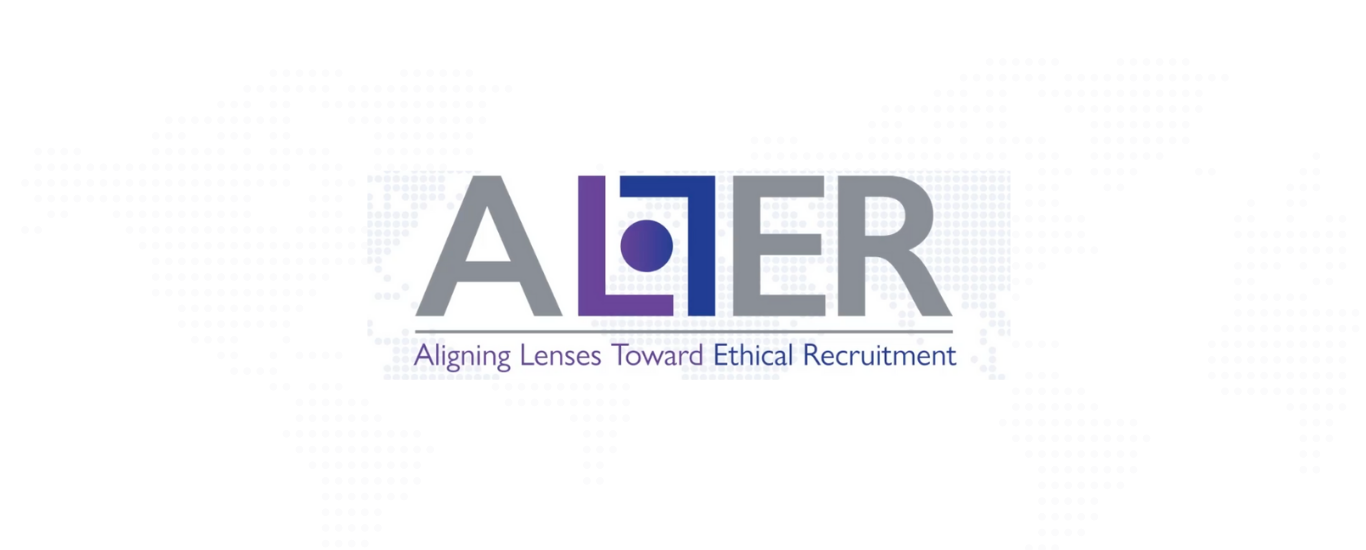
The International Organization for Migration (IOM) Philippines, in collaboration with the Blas F. Ople Policy Center and Training Institute (BOC) and other stakeholders, came up with the Aligning Lenses Towards Ethical Recruitment (ALTER) project which aims to reduce the prevalence of forced labor and exploitation among OFWs by mainstreaming ethical recruitment in the Philippines. This will be done by providing evidence-based recommendations for policy reforms, by building the capacity of Philippine recruitment agencies (PRAs) to implement ethical recruitment as defined in the International Recruitment Integrity System (IRIS) Standard, and by convening the government, PRAs, and other relevant stakeholders to discuss a plan of action for the effective and sustainable adoption of ethical recruitment in the Philippines, in line with the Montreal Recommendations on Recruitment Regulation. These activities are being undertaken under the framework of the ALTER project which is funded by the Global Fund to End Modern Slavery (GFEMS).
The University of the Philippines – Centre International de Formation de Autorités et Leaders (UP-CIFAL) Philippines serves as the research partner in this endeavor by mapping the Philippine recruitment policies, process and practices to the Gulf Cooperation Council (GCC) countries which will serve as the main basis for discussions, development of tools and training materials for capacity-building programs, and of a concrete plan of action under this project.
The study is divided into three reports:
a) the main report covering the overall Philippine recruitment policies, processes, and practices to the GCC states based on the migration cycle from the perspective of the Overseas Filipino Worker (OFW) and in line with the Montreal Recommendations and IRIS Principles of Ethical Recruitment;
b) sub-report on domestic workers and;
c) sub-report on hotel cleaners. The study consists of seven sections spread across the three reports. An overall analysis and recommendations on how to move forward in adopting ethical recruitment by Philippine regulators, recruitment agencies, civil society organizations, and key stakeholders in the domestic work and hospitality sector are covered in the research study.

![[RIGHT]unitar_logo](https://cifal.up.edu.ph/wp-content/uploads/2024/01/RIGHTunitar_logo.png)